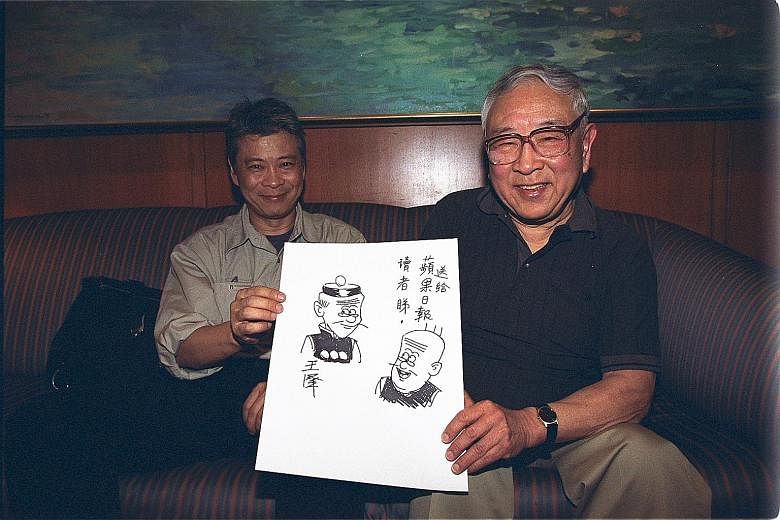HONG KONG • Comic artist Alfonso Wong Kar-hei, who created the beloved 'Lao Fu Zi' comic series, has died, reported the Apple Daily and NetEase websites.
The Tianjin-born artist died on Sunday in the United States, said NetEase.
He died from natural causes, according to a statement yesterday released by OMQ ZMedia, the company that promotes and markets the 'Lao Fu Zi' comics, also known as Old Master Q, and quoted by the website of Taiwan News. Apple Daily reported that Wong was 93 years old while NetEase put his age at 92.
Wong, who moved to Hong Kong in 1956, has said, "My life is like comic strips and I do my best to make Old Master Q, that is myself, to play the fool and entertain readers."
He studied Western art at Fu Jen Catholic University in Beijing and later became the art editor for a Hong Kong Catholic magazine.
In 1962, he used his oldest son's name Wong Chak as a nom de plume to create the Old Master Q (Lao Fu Zi in Chinese) series, which appeared in newspapers and magazines.
Hong Kong people and fans in Asia grew up reading the comic, which stars Old Master Q, a mischievous, elderly and bespectacled man dressed in traditional Chinese attire. The other regulars in the strip include Big Potato, Mr Chin and Miss Chan.
Wong was said to have been mulling over what pen name to use for his comic in 1962 when his son Joseph came running to him. So he picked his child's Chinese name.
Wong, who later migrated to California, drew the comic strip till he retired in the 1990s and Joseph took over.
On the OMQ website, Wong revealed how he came up with the Old Master Q character. He said: "Old Master Q has the traditional name and personalities of the Chinese, so he would be a classic character in a comic.
"And in the 1950s, 1960s in Hong Kong, life was difficult for everyone, so through some local and Chinese people, it reflected the lives of the people and showed the hard work and positive attitudes of the Hong Kong people."

